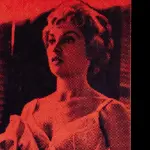"The Ministry of Ungentlemanly Warfare" exemplifies Guy Ritchie's recent decline in creativity. He eschews conventional, formulaic films, always aiming to inject his distinct voice and style. Yet, he often struggles to sustain this vision, resulting in works that merely "sprinkle personal expression" onto a commercial genre framework.
In this film, Ritchie departs from the British elegance seen in his classics like "Lock, Stock and Two Smoking Barrels" and "RocknRolla." These films humorously portray Anglo-Saxon notions of racial and civilizational superiority, often leading characters into absurd situations as they cling to their refined facades. Here, Ritchie cleverly satirizes his own national identity.
"The Ministry of Ungentlemanly Warfare" flips this elegance on its head, presenting it as a tool of defiance deeply rooted in British spirit. Characters like Gus's execution team and Churchill's leadership embody a blend of rogue-like charm and sophistication, merging the "British rogue" with the "British gentleman." In contrast, the Germans are portrayed with a negative form of elegance, steeped in Aryan pride and a belief in racial superiority that drives them towards extreme and harmful actions. This stark contrast underscores the film's exploration of national essences and their implications.

The Collision of Elegance Between Two Nations
The British elegance is characterized by a sense of liberation. Upon Gus's release from prison, he effortlessly appropriates the coats, cigarettes, and fine wines of his military superiors, embodying their refined image while others silently approve. During missions, they maintain elegant etiquette in subtle ways, treating black waiters with kindness, sharing humorous banter, and showing genuine respect for women. Throughout, British elegance is infused with an innate rogue spirit, blending nobility with a distinct British flair.
In contrast, German elegance appears rigid, arrogant, and merely surface-deep. Officers enforce their etiquette forcefully on trains, disregarding others' acceptance, starkly contrasting with the British duo's natural elegance. In conversations with female spies, they feign respect through laughter, attempting a British-style wit that rings hollow and mechanical under scrutiny, lacking true authenticity. Their dialogue often includes disdainful racial jokes aimed at Jews, sharply contrasting with the female spy's equal treatment of Black individuals on the train. Many scenes underscore the Germans' stiff and unyielding manners.

Throughout the film, this clash of elegance accompanies physical combat, forming an internal spiritual contest between the two nations. British elegance permeates their speech, behavior, and subtle gestures, juxtaposed against the Germans' deliberate performance and internal struggles. A notable scene unfolds in a classroom where a German senses the British invasion, attempting to warn others, only to be silenced by an officer's stern order to "follow protocol." The subsequent encounter reveals the true nature of the Germans—a brazen, graceless laughter that starkly contrasts with British elegance.
In "The Ministry of Ungentlemanly Warfare," this clash of styles not only defines the characters' interactions but also serves as a lens through which deeper themes of national identity and moral integrity are explored.

"Elite" Image Divide due to Racial Differences
Furthermore, both sides exhibit contrasting attitudes towards racism, fundamentally imbuing "elegance" with distinct spiritual qualities. Female spies and others consistently show warmth towards black and Indian individuals, acting as positive mentors. While North African blacks struggle with poor marksmanship against the invading Germans, the female spy demonstrates exceptional shooting skills, forging alliances between the British and African blacks, symbolizing a notion of "equal and harmonious" European white race.
This theme continues in subsequent paragraphs, where Gus and the Africans aid each other, and their leader, an Indian man and former cricket star, bonds with Gus as a fan of the sport. Cricket serves as a symbol of British culture, fostering mutual trust in battle. In contrast, the Germans portray a facade of racial equality; officers treat black maids respectfully on the surface but make derogatory Jewish jokes about female spies behind closed doors. They also reject wearing Roman attire suggested by the spy in favor of their Egyptian queen garb.
Clearly, differences in racial attitudes underlie the distinction in elegance between the two sides. The British demonstrate genuine etiquette and respect for foreigners, reflecting an egalitarian mindset that unites the nation across social classes and lifestyles. This ethos is evident from civilian Gus's team to Prime Minister Churchill, illustrating that even a "ruffian" can embody gentlemanly qualities. Conversely, the Germans represent the antithesis, portraying everyone as inherently predisposed towards violence and thuggery.

"Boring" Patriotism Speech
"The Ministry of Ungentlemanly Warfare" grapples with numerous considerations, primarily emphasizing the positive facets of British culture while subtly positioning Britain's "justice" and "spiritual correctness" above Germany, even navigating around potential controversies surrounding colonial history. However, these cautious choices render its wit somewhat superficial, transforming it from a genuinely pure British black comedy into more of a conventional British narrative. This approach ultimately contributes to the film's mediocrity, adhering closely to the standard commercial genre format. The humor, while present, only scratches the surface without delving deeper into genuine British wit.
Guy Ritchie's direction underscores the "British spirit" by sparing his characters from significant challenges, reserving setbacks for supporting roles. This lack of true adversity diminishes the tension in action scenes and dilutes the inner spirit of the narrative. Even during the climactic ship battle, setbacks are swiftly resolved, undercutting potential dramatic intensity. Ritchie maintains a controlled narrative pace, reflecting the calm and collected demeanor of characters like Gus, who navigate challenges with humor and ease, embodying the quintessential British gentleman.
The film's ending follows a steady trajectory, avoiding dramatic twists or defeats that might detract from its primary themes. This deliberate approach aims to amplify its patriotic message throughout, resulting in what some might perceive as a somewhat monotonous celebration of British resilience.

In contrast, Quentin Tarantino's "Inglourious Basterds," another World War II "kill squad" film, handles its themes more provocatively. Tarantino eschews historical analysis in favor of fabricated events that amplify raw emotions and primal instincts like revenge. The film's characters, both Allied and Axis, revel in the act of violence, contrasting sharply with the more controlled and artificial enjoyment depicted in "The Ministry of Ungentlemanly Warfare."
"Inglourious Basterds" reaches a peak with its iconic bar shootout scene, which encapsulates the brutal equality of war—where nationality and ethnicity fade in the face of survival and fate. Tarantino's film thrives on dynamic conflict, charismatic characters, and sharp dialogue, free from the burdens of heavy thematic messages.

Guy Ritchie's earlier works like "Lock, Stock and Two Smoking Barrels," "RocknRolla," and "Sherlock Holmes" benefitted from a more relaxed and creative approach, showcasing his talent for crafting distinctive British personas without the weight of moral or patriotic undertones. However, recent efforts have veered towards rigidity and seriousness, lacking the vibrant passion that characterized his earlier successes. While they bear Ritchie's signature style on the surface, they often lack the substance and energy that defined his earlier career.

















 Join the conversation and share your thoughts!
Join the conversation and share your thoughts!


































